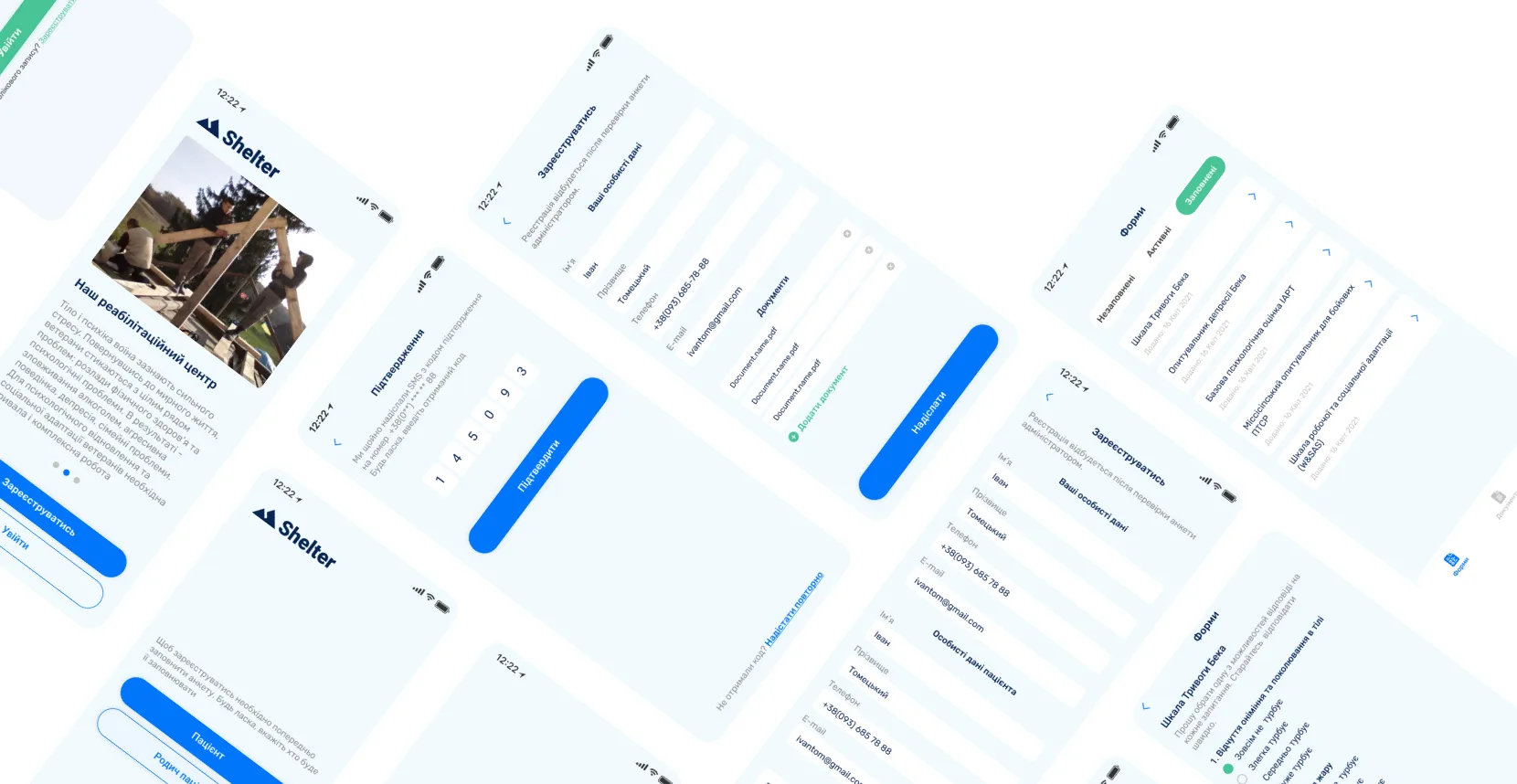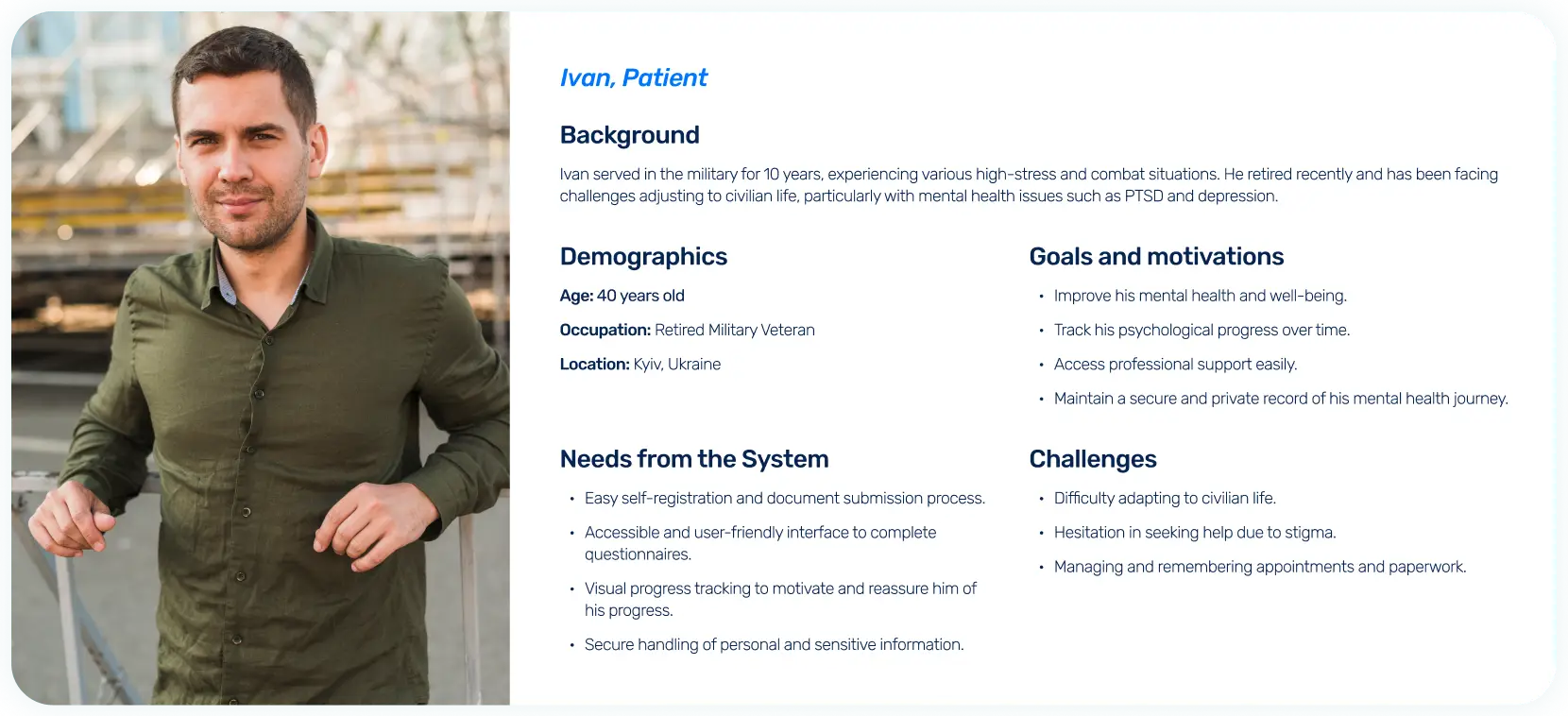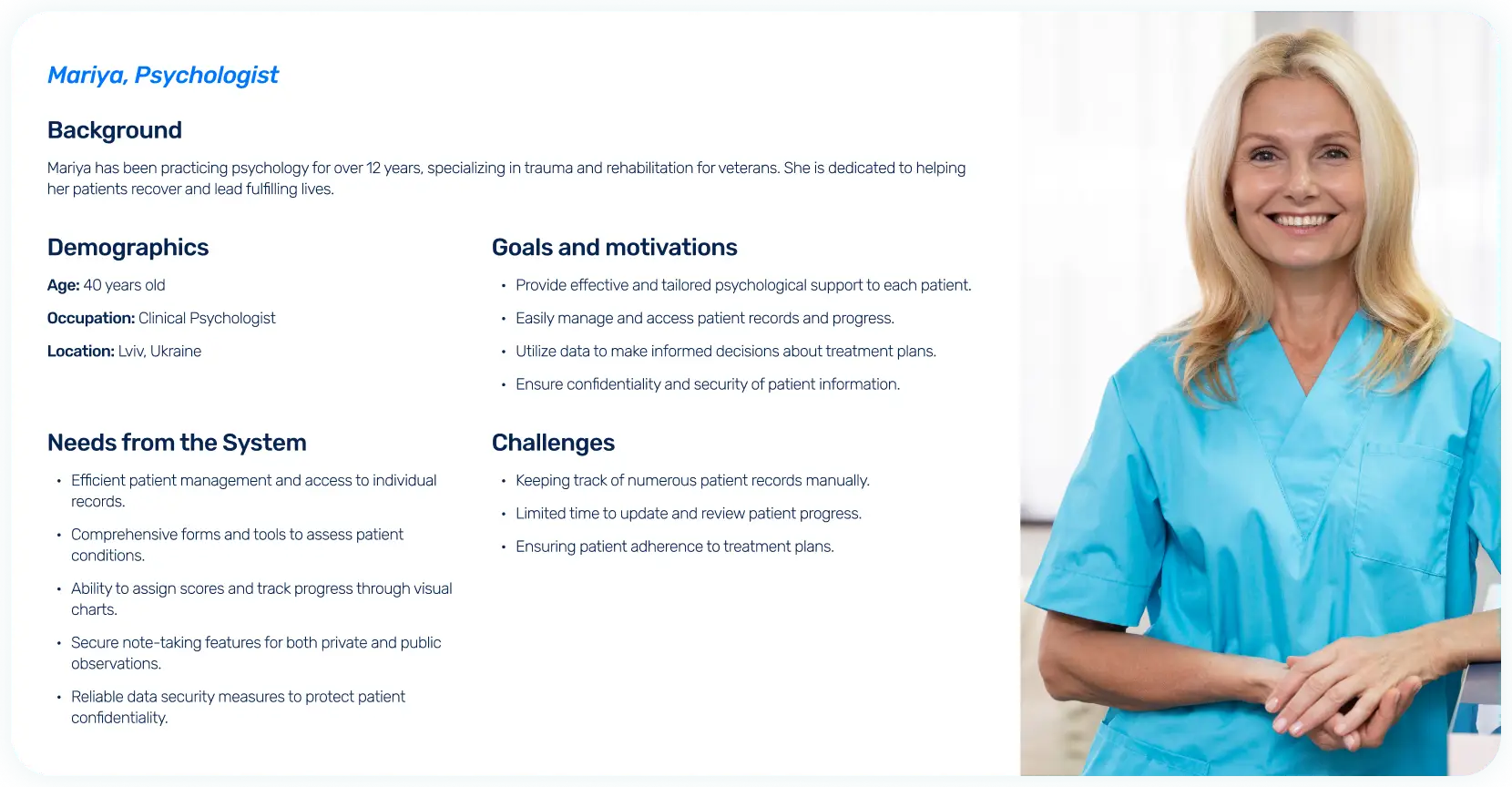Client
Our client is a rehabilitation center that helps veterans recover from the psychological impact of military service. The center provides holistic psychological support, including monitoring recovery progress through evidence-based methods like the Beck Depression Inventory. One of the problems they struggled with was a lack of a digital system for recording and managing patient information. The center relied entirely on paper-based records, which made the whole process cumbersome and outdated.
Challenge
The client approached us with a request to develop a software solution to digitize their processes. At the start of the project, they faced several major challenges:
- Manual support workflow. The psychological support process was not digitized, which affected efficiency and accessibility.
- Paper-based record management. The center relied solely on paper for managing patient records, which was risky and inefficient.
- Inadequate data protection. There was a critical need to safeguard the patients’ sensitive information.
Our goal was to design a robust web-based system where veterans and their families could easily register for support, submit documents, and track recovery progress through various psychological assessments.
Our cooperation
Our collaboration started in October 2021 and continued through February 2023. Over this period marked by committed partnership and development, we successfully transformed the client’s vision for a digitized rehabilitation process into a fully functional and secure solution.
Our partnership was characterized by open communication, meticulous planning, and a shared commitment to improving support for veterans.
Here’s a brief overview of our work together, which involved two main phases.
Discovery and planning
- Business idea and technical requirements. We worked closely with the client to define the business goal and gather technical requirements. This phase was crucial to ensure that we fully understood their needs and expectations.
- Team composition. Our team included a Project Manager/Business Analyst, a UI/UX designer, and three developers—a full-stack developer, a front-end developer, and a back-end developer. This mix of expertise ensured a comprehensive approach to the project.
Implementation
- Design-driven approach. Our UI/UX designer led the way in gathering detailed requirements and creating mockups. Every aspect of the project was well-documented and represented visually.
- On-premise infrastructure. To protect sensitive data and comply with privacy regulations, we chose an on-premise infrastructure for enhanced security.
- Regular communication. We kept in touch with the client regularly throughout the project. This included daily updates, technical meetings, sprint planning sessions, and retrospectives to review our progress and plan the next steps.
Scope of work
The solution we developed included two primary components: a responsive web platform and a mobile application. Together, these elements addressed two key needs—digitizing the psychological support process and providing a seamless, secure user experience for all stakeholders, including veterans, their families, and medical staff.
Our work spanned from the initial concept to the final implementation—starting with detailed planning, moving through robust development, and concluding with thorough testing to meet the client’s high standards.
Key features of the application we developed include:
- Self-registration for veterans or their families.
- Access to forms upon registration.
- Mandatory completion of specific forms.
- Uploading and submitting documents.
- Completing questionnaires, such as the Beck Depression Inventory, to track recovery progress over time.
- Seamless user experience for three key user roles.
Roles
To address the needs of all stakeholders, we implemented three primary roles within the solution, each with its own set of capabilities:
- Patient: Veterans who use the system to apply for support and track their progress.
- Administrator: Personnel responsible for managing the system and overseeing patient information.
- Psychologist: Professionals who monitor patient progress, complete forms, and add both private and public notes.
Results
Our team successfully developed a digital solution that greatly improved the veteran rehabilitation center’s operations.
Key achievements include:
- Digitized psychological support processes and reduced reliance on physical records.
- Improved veteran and family member interaction with the center through a clear and accessible platform that makes it easy to register for support and track progress.
- Secured sensitive military information through on-premise deployment.
- Rolled out a scalable and responsive solution adaptable for future needs.
This project shows how we can deliver comprehensive digital solutions, even when handling sensitive data and working with stakeholders who aren’t tech experts.


